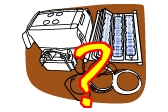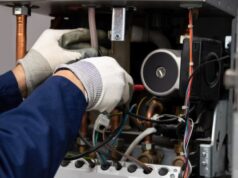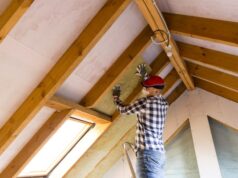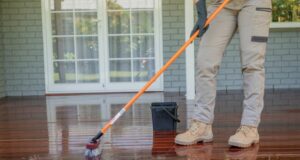
Find out what’s involved with DIY solar systems, what kinds of regulatory issues you may face, what parts need to be done by a licensed professional and how it works out in terms of costs and savings.

The decision to install your own PV system shouldn’t be taken lightly. There are plenty of reasons why professional installation is the right choice for most people – perhaps the biggest being safety, and the second biggest being that you won’t be able to claim government rebates if your system’s not installed by an accredited installer.
Other concerns include the long term quality of the installation, the need for a licensed electrician to inspect the work, and issues surrounding warranties and insurance.
Accreditations and rebates
Perhaps the biggest deterrence for DIY solar In Australia is the fact that it’ll make it FAR harder for you to claim government rebates. When you install solar panels in Australia, you’re normally eligible for government rebates to offset some of the cost of the system.
To claim these rebates though, your system will need to have been designed and put in place by people who are accredited with the Clean Energy Council of Australia. The purpose of this system is to improve safety, and to ensure that installers are properly trained and work to an established code of conduct, for the benefit of consumers.
If your solar panels aren’t installed by a CEC-accredited installer, you won’t be able to claim any kind of rebate on them. More information on accreditation is available at www.solaraccreditation.com.au.
Grid connection
If you’re planning on having your system feed energy back into the grid (which is the case with most solar panel installations these days), by law you’ll need a licensed electrician to inspect your work, test your setup and make the connection too. Only a licensed electrician is allowed to do this, so even if you do save a bit on labour costs, you’ll still need to get an electrician in – and he or she will still need to be confident that your installation work is safe. Likewise, all of the components in your system will need to conform to Australian Standard AS4777.
What’s involved
Bravado and a willing spirit aside, putting a solar installation on your roof’s not as easy as drilling a few holes, hoisting some panels onto the roof and then plugging everything in. If you’re a seasoned tradesman with some electrical experience there’s a chance you’ll know what’s involved and have the kind of skills and training necessary to do the installation safely. If not, there are plenty of hazards you should be aware of:
Load bearing capacity – All roofs have a limited ability to bear weight without being damaged by it. How much weight your roof can bear, and in what parts isn’t something you should take for granted. If you don’t know whether your roof will be able to hold the weight of your solar panels, or whether it needs some reinforcement, you’ll need to have this assessed.
Working at heights – Tradespeople are required to undergo training and use special equipment like harnesses and roof anchors to work at heights, and with good reason. If you’re not using the right safety measures and you don’t understand the risks, you could easily fall and be injured or killed.
Electrical / construction training – Anyone can use power tools and work with electricity, but again, knowing how to do so safely is a different story. Electricians and builders do lengthy apprenticeships so that they understand how to safely work with electricity, tools and materials. You may also need to check with your local council for regulatory information on home installation of PV systems.
Penetrations in roofs – Your roof is the key to keeping the weather out of your house – and if you’re putting any sorts of holes in your roof, it’s vital that they’re properly sealed up and waterproofed. If roof penetrations aren’t properly sealed, they’re likely to leak and cause all kinds of damage to your home.
Roof materials – The way you install solar panels on your roof will depend on the materials your roof’s constructed from – if it’s tiles or slate, you’ll need to ensure that they’re not damaged during installation – and if your roof’s metal, you’ll need to ensure that your roof’s not at risk of rusting or degradation as a result of swarf.
Costs and warranties
In many cases, the time and expense materials, tools and equipment for installing solar panels yourself is not equal to the fairly minor cost of installation offered by most supplier-installers – particularly if you factor in the rebate you’ll likely be missing out on. Likewise, if you do go it alone you’ll have no warranty on workmanship – and may even be voiding the warranty on the parts and materials (or worse, your insurance) if you’re not properly licensed.
If you are skilled, experienced and understand the risks, then installing your own panels may help you to save some money in some very specific circumstances – but it’s very important that you do understand the many potential pitfalls and expenses if you’re considering DIY.





